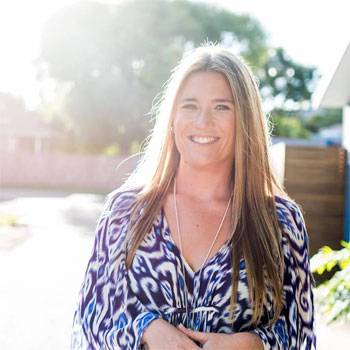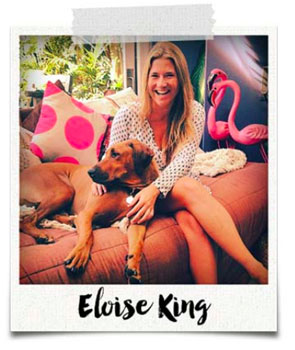Eloise King The Self-Love Project Interview

Perfectionism: How to Tackle the Silent Condition Making Us Sick, Sad and Die Young
An alarming new study into current rates of perfectionism - a condition linked strongly to depression, anxiety, eating disorders, early morbidity, suicide ideation and the act itself - shows a significant increase between 1989 and today.
Broadly defined, perfectionism is the combination of excessively high personal standards and overly critical self-evaluations(v). Physical or sexual abuse victims have a tangible other to blame, perfectionists, however, are the victim of their own brutal and damaging inner-critic.
"Perfectionism is not a behaviour. It's a highly critical way of being in relationship with yourself," says researcher and recovering perfectionist, Eloise King says. "It is so powerfully debilitating because it weighs in negatively on literally every part of a person's life."
The World Health Organisation reports record numbers of young people to be experiencing mental illness and frontline professionals are starting to refer to perfectionism as an 'emerging epidemic" and a serious 'public health issue".
Tackling the Inner Critic with Self-Love and Compassion
A key component to overcoming perfectionism involves coaching the self-critic to be kind through the active cultivation of a wiser and more compassionate inner voice.
"Habituating a compassionate and self-supporting inner dialogue is like having your own personal cheer squad with you at all times and is powerfully healing, not to mention preventative for a whole host of mental health conditions that are on the rise," says King. "Resetting expectations to be attainable and realistic instead of lofty and impossible is also important".
The Self-Love Project is a 6 week research-based program supporting those with strong inner-critics to change the tone and content of their inner-dialogue for a more self-loving and compassionate relationship with self. It draws on world-best research from Harvard, Princeton, Yale, The Resilience Centre, The University of Sydney and The Greater Good Science Centre.
Interview with Eloise King
After healing herself from her own debilitating perfectionism, Eloise researched and developed a research-based, inspired and proven framework to help tackle her own fierce inner critic. Today, Eloise supports others to do the same with her 6 week program titled The Self-Love Project. Majoring in psychology at The University of Sydney, Eloise later launched into postgraduate studies in counselling and psychotherapy. As the founder of Souluversity, launched in 2010, Eloise has worked with Deepak Chopra, Wayne Dyer, Anita Moorjani, Dr Joe Dispenza, Neale Donald Walsch, Marianne Williamson, David Avocado Wolfe and many other world-class thinkers. Eloise believes Self-Love is ultimately an altruistic pursuit. 'When a person understands and commits to living with true Self-Love and compassion, the positive effects are felt by the practitioner, of course, but soon ripple out to impact all significant others in their world as well," she says.
 Question: Can you explain the condition of perfectionism?
Question: Can you explain the condition of perfectionism?
Eloise King: Perfectionism is not a behaviour. It's a highly critical way of being in relationship with yourself, with the inner critic weighing in negatively on almost every part of a person's life. Nothing is ever -enough' for the perfectionist " not good enough, skinny enough, smart enough, funny enough, wealthy enough, successful enough " which means life, in general, is quite stressful. Furthermore, achievements that might be celebrated by others are either unrecognised or minimised by the perfectionist.
Question: What do you think has contributed to the increase in this debilitating condition?
Eloise King: As a culture, we have become less connected in communities and more individualistic, which means we're competing against each other for best jobs, best salaries and other money-related benefits to survive in an expensive world. Instead of being able to relax into who we authentically are / be, we are required to keep stretching for the competitive edge, becoming better educated, better looking, better socially networked and better than who we actually are.
Also, our media and advertising pray on our insecurities, bombarding us with images of -perfect' bodies, -perfect' families, -perfect' smiles, -perfect' holidays, -perfect' furniture, -perfect' fashion and -perfect' lives in an attempt to make us think we need their products and services to -be better'. These images are not real but, it's difficult not to compare and desire to be -more perfect' too.
Question: How is the condition of perfectionism linked with depression, anxiety, eating disorders and suicidal thoughts?
Eloise King: One of the hallmarks of perfectionism is the presence of a strong and relentless inner-critic. When your inner-critic is barraging you with messages of -not good enough' all day " not skinny enough, smart enough, funny enough, wealthy enough, successful enough " self-esteem takes a beating, leaving perfectionists vulnerable to a whole host of mental health conditions, including depression, anxiety, eating disorders and, in extreme cases, suicidal thinking.
Question: Did the rise in the condition of perfectionism inspire the creation of The Self-Love Project?
Eloise King: The Self-Love Project was created in response to my own perfectionistic burnout. Despite achieving healthy amounts of success, nothing was ever quite good enough for the perfectionist in me. Eventually, my inner critic became overwhelmingly strong and I needed a different way to live and be in relationship with myself. As a life-long student of psychology, journalist and founder of The Souluversity, I set about dedicating a year of my life to healing, researching, practicing and creating a daily life framework that could be trusted to support me, and others, in a future full of health, happiness and wellbeing.
Question: What is The Self-Love Project?
Eloise King: The Self-Love Project is a 6-week online program designed, amongst other things, to coach your inner-critic to be more loving, kind and compassionate. Graduates report greater levels of emotional strength, inner stability, self-esteem and resilience. Drawing on neuroscience and world best research from Harvard, Princeton, Yale, The Resilience Centre, The University of Sydney, TED Talks, The Greater Good Science Centre, The New York Times, Forbes Magazine and more, The Self-Love Project is a fabulous support for perfectionists, and others wanting less stress and more love in their every day.
Question: What is involved in The Self-Love Project course?
Eloise King: On joining, participants receive The Self-Love Project Guidebook and workbook to read and complete activities in preparation for the first online session. Live weekly sessions are facilitated online by me (Eloise King) every Monday night at 8pm. Sessions provide an important opportunity for us to learn together in community, share stories and stay inspired with each participant cultivating simple yet empowering daily habits for Self-Love, every day.
Question: What is one thing we can do, daily, to build a more compassionate and loving relationship, with ourselves?
Eloise King: Slow down and get to know the voices in your own head " everyone has them. Some of us will have kind and supportive voices, encouraging us to go on and achieve the things we want in life, such as -good on you, you've got this'... and soothing us emotionally when we fall short, -it's okay sweetie, that was really hard and you're doing the best you can'. Others will have harsh and punitive voices that are constantly putting you down " -you're such an idiot', -you always mess things up', or -of course noone wants to work with you or be your friend'. By building awareness around the tone and personality of your own inner voices, you will be in a better position to improve the quality of the most powerfully influential relationship in your life, the one between you and YOU.
Question: How does self-love protect us against depression and anxiety?
Eloise King: Perfectionists experience higher levels of stress than the average person, which can be detrimental to their mental, emotional and/or physical health longer term. As the chronic victim of their own inner critic, a perfectionists body is awash with stress hormones, including cortisol and plasma lactate. Happy hormones, such as serotonin, are suppressed leading to increased risk and incidence of anxiety and depression.
When we practice the research-based habits for self-love, this trend is positively reversed. Instead, our bodies experience improved hormonal balance, improved coherence between the heart and mind, an increase in production of happy hormones, DHEA (the anti-aging hormone) and the IgA antibody to boost the immune system. Self-Love makes us healthy, happy and well.
Question: How can we become self-love role models and reduce the risk of perfectionism in our families and friendship groups?
Eloise King: Firstly, we need to understand what it feels like to live in a state of stress (a contraction of physical, mental and emotional self) verses living in a state of love and creativity (an expansion of physical, mental and emotional self). The self-love practitioner knows how to choose and support themselves to live love, every day.
In the same way a mother ensures her child is warm, well-nourished, well-educated, feels connected and is responded to with kindness, love and compassion in times of need, a practitioner of Self-Love has trained themselves to respond to their own needs in the exactly the same way.
Interview by Brooke Hunter
MORE





